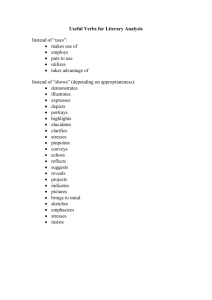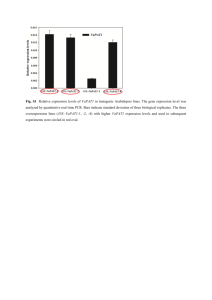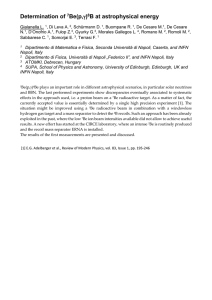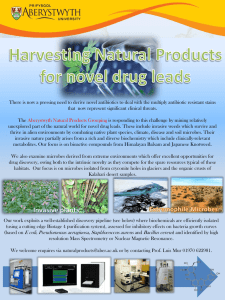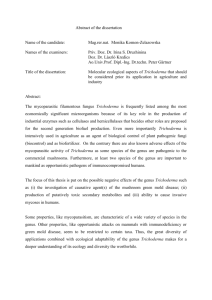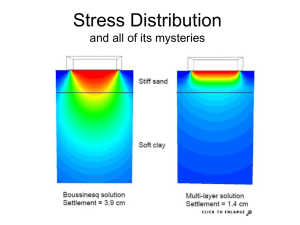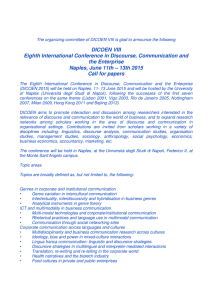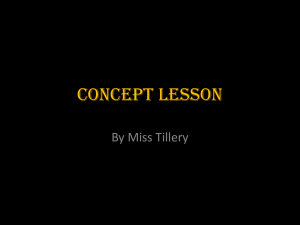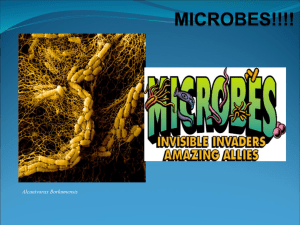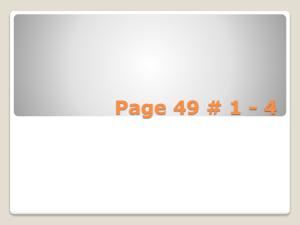P503 THE PLANT CRY FOR HELP: BIOTIC AND ABIOTIC
advertisement
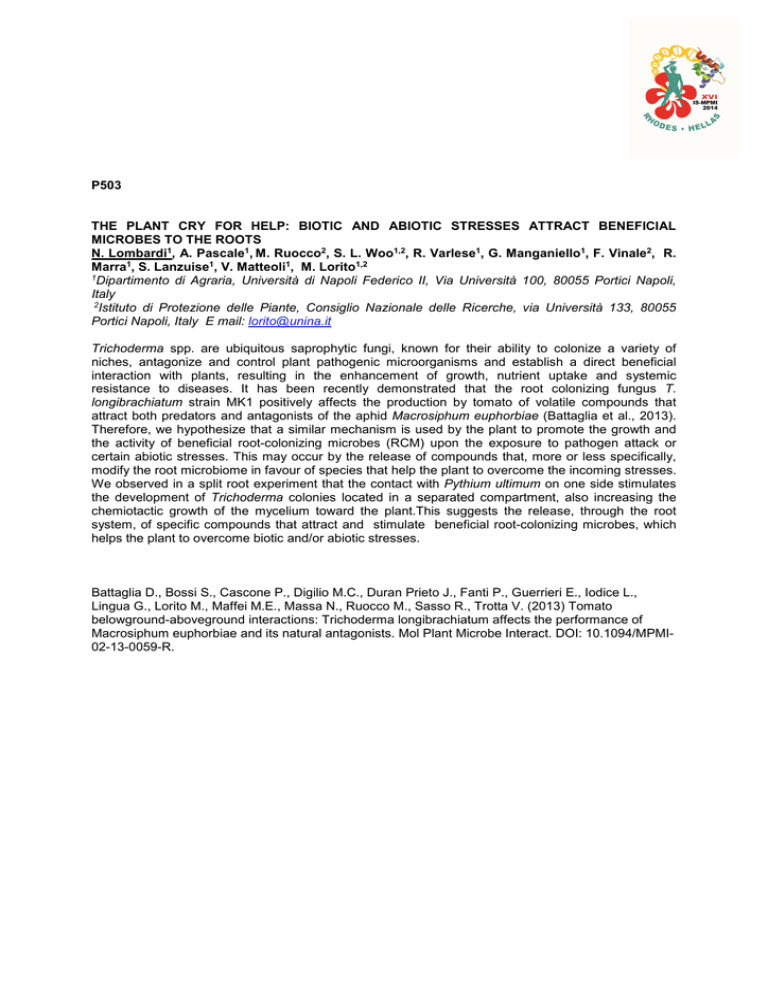
P503 THE PLANT CRY FOR HELP: BIOTIC AND ABIOTIC STRESSES ATTRACT BENEFICIAL MICROBES TO THE ROOTS N. Lombardi1, A. Pascale1, M. Ruocco2, S. L. Woo1,2, R. Varlese1, G. Manganiello1, F. Vinale2, R. Marra1, S. Lanzuise1, V. Matteoli1, M. Lorito1,2 1Dipartimento di Agraria, Università di Napoli Federico II, Via Università 100, 80055 Portici Napoli, Italy 2Istituto di Protezione delle Piante, Consiglio Nazionale delle Ricerche, via Università 133, 80055 Portici Napoli, Italy E mail: lorito@unina.it Trichoderma spp. are ubiquitous saprophytic fungi, known for their ability to colonize a variety of niches, antagonize and control plant pathogenic microorganisms and establish a direct beneficial interaction with plants, resulting in the enhancement of growth, nutrient uptake and systemic resistance to diseases. It has been recently demonstrated that the root colonizing fungus T. longibrachiatum strain MK1 positively affects the production by tomato of volatile compounds that attract both predators and antagonists of the aphid Macrosiphum euphorbiae (Battaglia et al., 2013). Therefore, we hypothesize that a similar mechanism is used by the plant to promote the growth and the activity of beneficial root-colonizing microbes (RCM) upon the exposure to pathogen attack or certain abiotic stresses. This may occur by the release of compounds that, more or less specifically, modify the root microbiome in favour of species that help the plant to overcome the incoming stresses. We observed in a split root experiment that the contact with Pythium ultimum on one side stimulates the development of Trichoderma colonies located in a separated compartment, also increasing the chemiotactic growth of the mycelium toward the plant.This suggests the release, through the root system, of specific compounds that attract and stimulate beneficial root-colonizing microbes, which helps the plant to overcome biotic and/or abiotic stresses. Battaglia D., Bossi S., Cascone P., Digilio M.C., Duran Prieto J., Fanti P., Guerrieri E., Iodice L., Lingua G., Lorito M., Maffei M.E., Massa N., Ruocco M., Sasso R., Trotta V. (2013) Tomato belowground-aboveground interactions: Trichoderma longibrachiatum affects the performance of Macrosiphum euphorbiae and its natural antagonists. Mol Plant Microbe Interact. DOI: 10.1094/MPMI02-13-0059-R.
